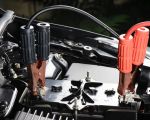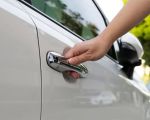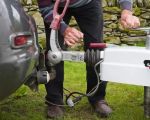What to Do if Your Car's Engine Stalls: Essential Steps for Drivers
It’s every driver’s worst nightmare: you’re cruising down the road, and suddenly, your car’s engine stalls. Whether it’s on the highway, in traffic, or at an intersection, a stalled engine can be a stressful and potentially dangerous situation. But what should you do if your car’s engine stalls? While it may feel like an emergency, understanding the right steps can help you stay calm, assess the situation, and possibly get your car running again.
In this article, we will discuss the common causes of engine stalls, how to troubleshoot and fix a stalled engine, and important tips for preventing engine stalls in the future. With the right knowledge, you can handle a stalled engine situation effectively and safely. If you find yourself in a situation where troubleshooting doesn’t work, we’ll also explore when to call for professional help.
- 1. Understanding Engine Stalls: What Happens When Your Engine Stalls?
- 2. Common Causes of Engine Stalls and How to Identify Them
- 3. First Steps to Take When Your Car’s Engine Stalls
- 4. Troubleshooting Engine Stalls: A Step-by-Step Guide
- 5. When to Call for Professional Help
- 6. Preventing Future Engine Stalls: Maintenance Tips
1. Understanding Engine Stalls: What Happens When Your Engine Stalls?
When your car’s engine stalls, it means the engine has stopped running unexpectedly. In a modern car, the engine relies on a combination of fuel, air, and spark to keep running. When any of these components fail, the engine may lose power and stall.
In most cases, an engine stall occurs when the engine is no longer receiving the necessary fuel or oxygen to keep running, or the spark plugs fail to ignite the fuel properly. This can result from various reasons, from a malfunctioning fuel pump to a problem with the alternator or battery.
It’s important to distinguish between a full engine stall (where the car completely shuts off) and a momentary loss of power. While the latter may happen briefly and then return, a full stall means the engine is no longer running and needs immediate attention.
2. Common Causes of Engine Stalls and How to Identify Them
There are several potential reasons why your engine may stall, and identifying the underlying cause is key to resolving the issue. Here are some of the most common causes of engine stalls:

Pick Your Part - Help Yourself
1232 Blinn Ave, Wilmington, CA 90744, USA
Fuel System Problems
One of the most common causes of engine stalling is an issue with the fuel system. A clogged fuel filter, a failing fuel pump, or an empty gas tank can disrupt the fuel supply to the engine, causing it to stall. If you suspect this is the problem, check the fuel gauge and ensure there’s enough gas in the tank.

Pick Your Part - Greer
13054 E Wade Hampton Blvd, Greer, SC 29651, USA
Ignition System Issues
The ignition system is responsible for igniting the air-fuel mixture in the engine’s cylinders. If the spark plugs, ignition coils, or the ignition switch are faulty, it can cause the engine to stall. If your car is stalling at low speeds or when you stop, this could indicate an issue with the ignition system.
Electrical Problems
Electrical problems, such as a dead battery or a malfunctioning alternator, can cause your engine to stall. The alternator is responsible for recharging the battery while the engine is running, and if it fails, the car’s electrical system can be drained, leading to a loss of power and a stall.
Transmission or Clutch Problems
If your car has a manual transmission, a problem with the clutch system can also lead to engine stalling. For example, if the clutch doesn’t fully disengage, it can cause the engine to stall when you try to shift gears. Similarly, an issue with the transmission, such as low transmission fluid, can cause the engine to stall.
3. First Steps to Take When Your Car’s Engine Stalls
If your car’s engine stalls while driving, it’s important to stay calm and follow a few essential steps to keep you and others safe:
- Stay Calm and Assess the Situation: Try to stay calm and assess where you are. If you’re on a busy road or highway, signal and pull over to the side as soon as possible.
- Turn on Hazard Lights: Once you’re safely off the road, turn on your hazard lights to alert other drivers.
- Shift to Neutral: If you’re driving a manual transmission, shift into neutral and restart the engine. For automatic transmissions, put the car in park.
- Restart the Engine: Try restarting the engine. If it starts running again, it could have been a minor issue like a fluctuation in fuel or air intake.
If the engine does not restart, it’s important to move to the next steps for troubleshooting or seeking professional assistance.
4. Troubleshooting Engine Stalls: A Step-by-Step Guide
If your engine stalls repeatedly or doesn’t start again, there are some troubleshooting steps you can take:
1. Check the Fuel System
Check the fuel gauge to ensure you have enough gas. If the tank is full and the engine still stalls, you may have a clogged fuel filter or a malfunctioning fuel pump. Consider replacing the filter or having the fuel pump checked by a professional mechanic.
2. Inspect the Battery and Alternator
If the engine stalls but the battery seems to be fine, the alternator could be the issue. A failing alternator won’t properly recharge the battery, leading to electrical issues that can cause the engine to stall. Have your alternator checked at a repair shop.
3. Look for Transmission Problems
If your car has a manual transmission, a faulty clutch or low transmission fluid could be the cause of the stall. Check the clutch system for issues, and ensure the transmission fluid is at the correct level.
5. When to Call for Professional Help
While some engine stalls can be resolved with simple troubleshooting, others require professional attention. If the engine stalls repeatedly or if you’re unable to identify the cause, it’s best to call for a tow or contact a mechanic for help. A mechanic can diagnose issues with the fuel system, ignition system, electrical system, or transmission that may require specialized tools and knowledge.
Additionally, if you feel unsafe or if you’re unable to safely pull off the road, calling for professional help is the best option. Services like roadside assistance can help get your vehicle off the road and to a repair shop for further evaluation.
6. Preventing Future Engine Stalls: Maintenance Tips
Regular vehicle maintenance is essential for preventing engine stalls and ensuring your car runs smoothly. Here are some important maintenance tips to help prevent engine stalling:
- Regular Oil Changes: Make sure to change your car’s oil regularly to ensure proper engine lubrication and function.
- Check Fuel Filters: Replace your fuel filter at recommended intervals to prevent clogs and ensure proper fuel flow to the engine.
- Inspect the Battery and Alternator: Regularly check the battery and alternator to ensure they’re functioning properly and replace them when necessary.
- Monitor the Transmission Fluid: Regularly check and top off the transmission fluid to keep the system running smoothly and prevent stalling.
By staying on top of routine maintenance, you can significantly reduce the chances of experiencing engine stalls and keep your car running reliably for years to come.





























